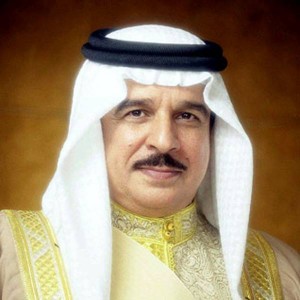When oil prices drop — and anyone who has read a newspaper recently or gone to the gas station to fill up their tank knows they are at rock bottom — Americans get giddy. It’s also a source of political pride as President Barack Obama made clear in his State of the Union address last month.
“Thanks to lower gas prices and higher fuel standards, the typical family this year should save $750 at the pump,” he told the nation.
But the effect of lower oil prices is a little more nuanced when it comes to New York City real estate. When talking about foreign real estate investors in New York, Joseph Harbert, president of the Eastern region at Colliers International, said there is “still some Middle Eastern interest, but the fall in oil prices will slow that down temporarily.”
In general, many are wondering whether investors from other oil-rich countries, predominantly Russia, will continue to pour money into the Big Apple.

Mikhail Prokhorov
For example, when the news broke last month that Russian billionaire Mikhail Prokhorov planned to sell his 80 percent stake in the Brooklyn Nets, reports suggested that, along with the basketball team’s disappointing record, the drop in oil prices (and Russia’s tanking economy) had something to do with it.
To be sure, Russian interest in New York hasn’t fallen off entirely. Late last month, Prokhorov’s fellow Russian billionaire, Roman Abramovich — owner of the London-based soccer team Chelsea F.C. — asked the city’s Landmarks Preservation Commission to approve his plans to build a mega mansion on the Upper East Side.
But sources say he’s a rare exception and predict that some investors from Russia and other oil-rich countries will be more selective about what kind of New York real estate they acquire — or finance — this year.
“I think top trophy condo buildings may have trouble selling at $40 million,” said Melissa Cohn, president of GuardHill Financial. “So investors may look at $20 million opportunities instead.”
An (oil) stable Middle East
The current drop in oil prices is nothing to sneeze at.
Oil prices have fallen by more than half since peaking in June 2014, after the U.S. ramped up shale oil production. At the same time, global energy demand has weakened because of lackluster economic growth in Europe and a slowdown in Asia. And at nearly $45 a barrel, oil prices are at their lowest level in five years.
But not all investors with petroleum-based fortunes are experiencing the price drop in the same way.
“When it comes to foreign investors, I think you look at each country specifically. I don’t think there any shortages of riches in the Middle East,” said Harbert of Colliers. “With Russia, it’s not just oil’s decline, it’s geopolitical, too.”
Despite oil’s recent plunge, the Organization of Petroleum Exporting Countries, or OPEC, a 12-country consortium that produces 40 percent of the world’s crude oil, has surprisingly refused to cut production.

Hamad bin Isa Al Khalifa
Nonetheless, the decline doesn’t appear to be dampening Middle Eastern investment in New York real estate yet.
Investors from the Middle Eastern countries of Bahrain, Kuwait and Qatar pumped $1.16 billion into New York’s commercial real estate market last year, an increase of 342 percent from the year before, according to figures from the real estate research firm Real Capital Analytics. The countries’ share, according to RCA, accounted for 9.6 percent of all foreign investment in the market.
According to RCA, while the prices of transactions have been a little lower in recent months, the number of acquisitions by Middle Eastern investors hasn’t slowed since the price of oil began falling in June.
In September, Kuwait investors picked up a Hampton Inn on East 43rd Street for roughly $80 million and a Holiday Inn Express on West 36th Street for roughly $66 million. Meanwhile, in December, the royal family of Bahrain purchased the Marriott at 170 Broadway for $150 million.
Also in December, the hospitality subsidiary of Qatar’s Al Faisal Holding announced plans to buy the Manhattan at Times Square Hotel for a mega $546.4 million.
Nonetheless, some sources say that in the short-term, activity by Middle Easterners could dip a bit.
“Those countries are oil economies and have very stable production,” said Harbert. “They will continue to thrive in the long run unless oil goes to zero. They aren’t poor, but the short-term effect is a slowdown in purchase activity in the U.S.”
Russian doubt
Russia, of course, is a different story. That’s largely because the country’s economic problems go deeper than its oil fields.
A year ago, after Russia’s march into Crimea — the peninsula that it annexed in a territory dispute with Ukraine — the U.S. and Europe enacted harsh sanctions against Russia. The country unsuccessfully attempted to buoy its declining currency by hiking interest rates to 17 percent. But that sent the ruble plummeting. Additional measures have also flopped.
The tanking ruble has led some real estate observers in New York to question the resiliency of Russian condo buyers. (Russians are far more active on the residential side of the market than on the commercial side and have become known for picking up expensive pied-á-terres.)
“I have two clients from Russia who don’t want to close on their condos, one in Chelsea and one on West 66th,” said Emir Bahadir, co-founder of brokerage RLTY NYC, whose family operates a real estate firm in Turkey. “They need the cash at this point.”
In the past, he said, Russian investors would buy without really looking at a property’s price. Now, he said, they are being more careful, with some going for smaller, less-expensive units.
“Instead of $8 million, they are buying units between $3 million and $4 million,” Bahadir said.
Ed Mermelstein, a real estate attorney who has many Russian clients, said Russian investors have recently shifted away from high-profile, vanity condo purchases and are looking for stakes in commercial development, which can offer better returns than in their own home country. He recently closed several large deals with Russian investors that had been temporarily in limbo after the ruble’s steep decline at the end of 2014.
But Mermelstein said he’s actually seeing the economic situation in Russia help spur more investment in New York. “When the rest of the world is in havoc, the U.S., and especially New York City, is the safest and strongest place to invest,” he said, during a phone interview.
“I’m on a plane right now going to Russia to meet with groups looking to put money into projects in New York,” he said.
